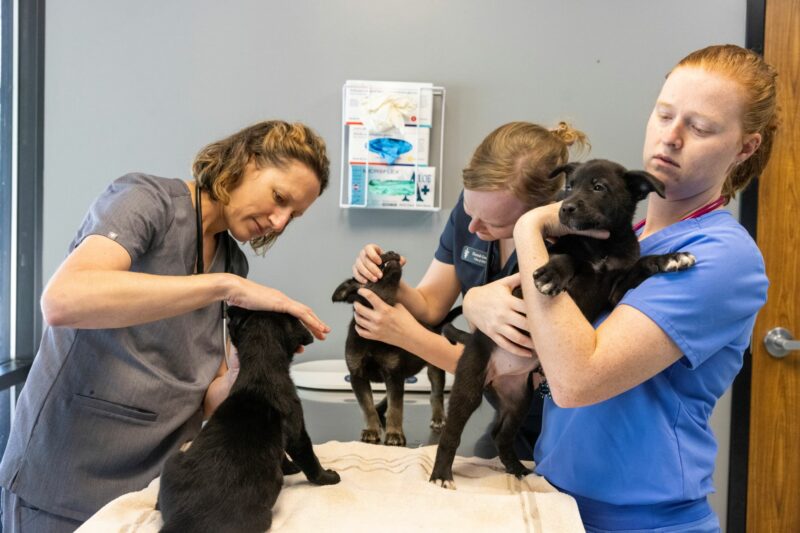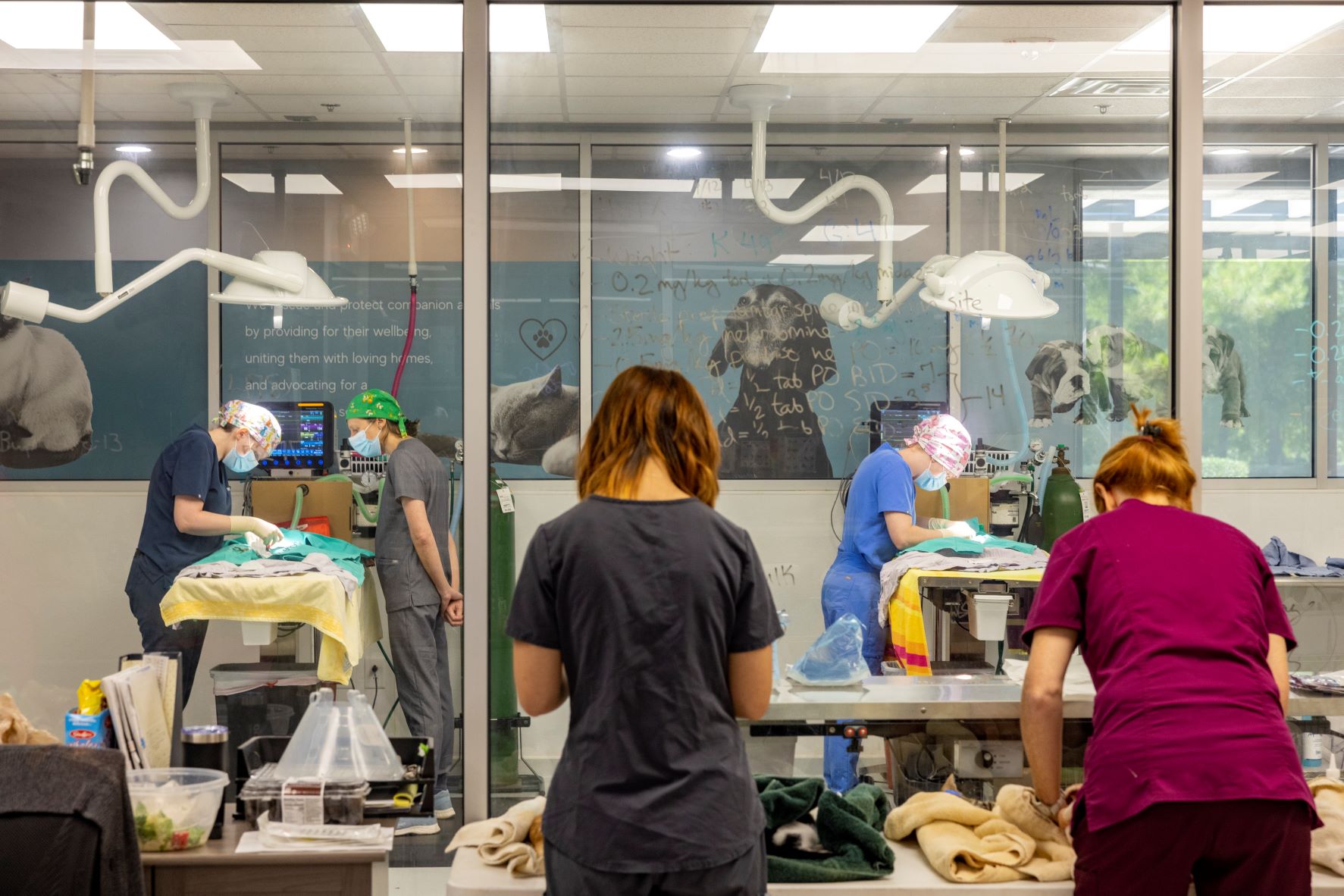
Leveraging UGA’s experience developing a new teaching hospital, Johnston, UGA’s Small Animal Medicine and Surgery department head, made several suggestions to adjust plans for AAHS’ surgical suite to enhance student learning.
“They encouraged us to think more expansively, and their input made us a stronger partner, a better hospital, and a better community-driven shelter,” said Dr. Cheryl McCormick, CEO of the Athens Area Humane Society. “It’s made us a contender for one of the best shelter medicine programs in the southeast.”
The 15,000-square-foot facility opened in September 2021 and has supported AAHS’ considerable growth. It has allowed the Humane Society to provide more than 500 surgeries each month, give away more food to families who are struggling to afford the cost of pet food, and bring in more animals from overcrowded partner shelters, among other key initiatives to support animal and community health.
“There currently is a shortage of veterinarians engaged in shelters. Through this program we are taking a higher-level view. We want to equip the next generation of veterinarians to help shelters and care for animals in all areas of our communities.”
Dr. Staci Cannon
Clinical Assistant Professor of Shelter Medicine
“At a time when the community need has never been greater, we have added to the capacity of what we are capable of. Everything we do has increased two- to threefold,” Kaylor said. “The UGA students help us with this volume. They provide extra capacity, support case management, and take some of the initial intake burden off full-time staff.”
UGA’s shelter medicine program has grown along with AAHS. Dr. Staci Cannon, a UGA veterinary medicine alumna, returned to Athens in July 2022 to serve as the college’s first faculty shelter medicine specialist. Cannon is housed at the Humane Society and oversees the fourth-year veterinary medical students who are completing clinical rotations at AAHS.
“Student education takes more time,” Johnston said, “so we wanted a UGA faculty member to be embedded at the Humane Society. We are guests in their building, and Dr. Cannon can dedicate time without burdening the Humane Society’s veterinarians.”

(L-R) CVM shelter medicine specialist Dr. Staci Cannon and fourth-year veterinary students Hannah Greene and Helen Jones perform checkups on a litter of high-energy puppies at the Athens Area Humane Society. (Photo by Dorothy Kozlowski/UGA)
Cannon works closely with AAHS staff and veterinarians. Her background in shelter medicine and public health will support AAHS’ community outreach initiatives. In addition to spay/neuter surgical experience, veterinary students learn about infectious disease prevention and management, facility design, and behavioral health in shelter animals. Keeping shelter pets healthy leads to shorter shelter stays, improved animal welfare, and more vulnerable lives saved.
Cannon and AAHS staff share a vision of connecting future veterinarians to shelter medicine.
“There currently is a shortage of veterinarians engaged in shelters,” Cannon said. “Through this program we are taking a higher-level view. We want to equip the next generation of veterinarians to help shelters and care for animals in all areas of our communities.”
“We can offer a place where people can train and take the expertise to other shelters, humane societies and private practices across Georgia,” Kaylor said. “This will allow for more well-rounded veterinarians who can partner with shelters or conduct research to help animals.”
UGA plans for the shelter medicine partnership to expand in the years to come. The university is conducting fundraising efforts to support the program’s growth. UGA has hired a second faculty member to be housed at AAHS starting in December and plans to hire a veterinary technician.
“It is still early in the relationship,” Johnston said. “There is a large opportunity to develop the partnership and have things grow, and we feel very positive about it.”

Fourth-year veterinary student Hannah Greene, Dr. Staci Cannon, and fourth-year veterinary student Helen Jones perform spay and neuter surgeries on cats at the Athens Area Humane Society. Recent patients recover in the foreground under the care of technicians. (Photo by Dorothy Kozlowski/UGA)
Author:
Sources:
Spencer Johnston
Staci Cannon